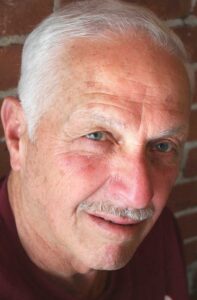ALBERT COLONE RECOUNTS FAMILY’S STORY
COVID? It Could Have Been Worse
Editor’s Note: The COVID-19 pandemic has Albert Colone, founding president of the former National Soccer Hall of Fame in Oneonta, musing about the immigrant experience, when times were REALLY tough. This is the first of two columns on the immigrant experience of his grandparents, Frank and Lucia (Valentini) Colone.

COVID-19, which hit America hard starting in early 2020, turned our worlds upside down. I haven’t been able to hug my grandchildren since early February 2020 on my last visit with them. So here we are hunkered down, adhering to the virus protocols, playing it safe and staying healthy.
So, what do you do to maintain your sanity?
I reflect on stories surrounding the trials and tribulations of my ancestors to understand the struggles they plowed through in their lives.
Remember, they were handicapped by not having all of today’s quality-of-life assets, no cell phones, computers, the luxuries of travel from automobiles to airplanes, prepared foods, safe housing, money and all of assets that we enjoy, and perhaps take for granted, today.
Do you hear where I’m going with this? Let me share with you some of the storied struggles of the early lives of my grandfather and grandmother.
You have reached your limit of 3 free articles
To Continue Reading
Our hard-copy and online publications cover the news of Otsego County by putting the community back into the newspaper. We are funded entirely by advertising and subscriptions. With your support, we continue to offer local, independent reporting that is not influenced by commercial or political ties.

